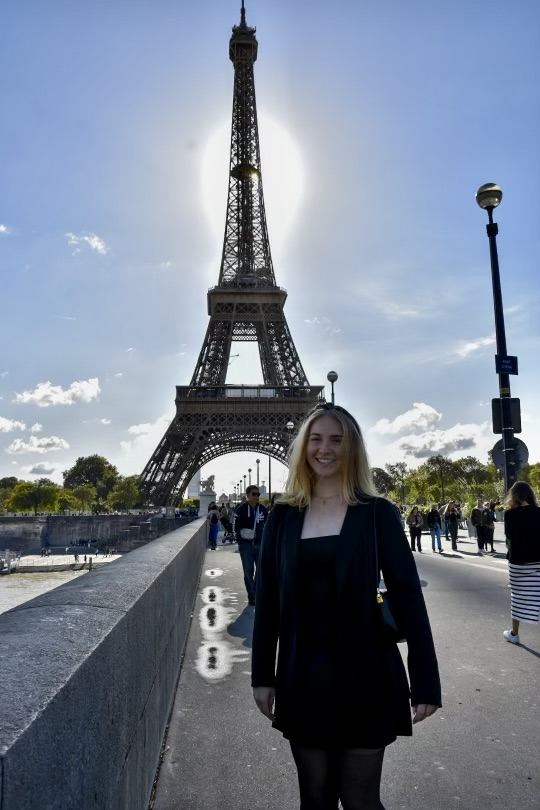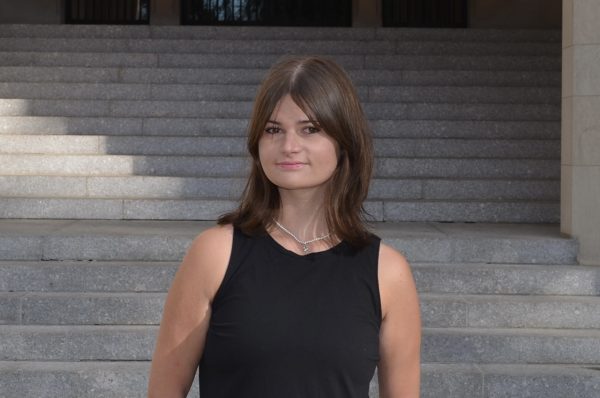On March 3, my philosophical ethics course at Fordham London took place in the Public Gallery at Parliament’s House of Commons, watching the daily minutiae of British democracy at work. But what was supposed to be a routine visit on par with the London Centre’s experiential learning program became an extraordinary moment of history in real-time: witnessing Prime Minister Keir Starmer deliver an address amid the recent transgressions surrounding the Russo-Ukrainian War.
The statement came just 24 hours after Sir Keir Starmer met with European leaders over the response to Ukraine and days following President Donald Trump and Vice President JD Vance’s heated discussion with Ukrainian President Volodymyr Zelenskyy, where Trump alleged that Zelenskyy was “gambling with World War III.”
As a measure of accountability to Parliament, the Starmer-led Labour Government spoke before the House to provide an update on the recent summit on Ukraine and the U.K.’s steps moving forward.
Starmer assured Parliament that British aid to Ukraine would continue to “flow” as part of the larger mission to support Ukraine amid Russian aggression, a stark contrast to the United States’ decision to pause military aid and the sharing of intelligence towards Ukraine just hours after Starmer’s address. “In this House, we stand by Ukraine because it is the right thing to do … But we also stand by them because it is in our interest to do so,” Starmer declared.
Starmer’s U.S.-dissenting sentiments regarding Ukraine are particularly noteworthy when compared to his prior visit to the White House on Feb. 27, in which Starmer and Trump shared an amiable discussion.
The Prime Minister continued to speak before the House, stating, “What happened in [Trump’s] subsequent meeting with President Zelenskyy … is something nobody in this House wants to see. But I do want to be crystal clear: we must strengthen our relationship with America. For our security, for our technology, for our trade and investment, they are and always will be – indispensable.”
Throughout his address, the House was lively throughout his address, with every seat filled and plenty of “hear, hear”’s to be heard. Members of the Opposition, notably Leader of the Opposition and Conservative Party MP Kemi Badenoch, were given the opportunity to offer their thoughts regarding Starmer’s political strategy. Starmer responded to their objections in earnest, engaging in productive discussion surrounding such impactful diplomatic moves for the U.K.
Angela Chen, GSB ’26, gave her thoughts on the experience: “It was interesting to see the UK’s Prime Minister address the House on such major issues, especially with everything happening so fast in the news. Hearing the opposition leaders respond made it even more engaging since we got a sense of the different perspectives. It was definitely a unique experience to witness in person.”
Piers Benn, Ph.D., an academic philosopher, and instructor for the Fordham London course, emphasized the unprecedented nature of the opportunity, recounting that the last time a class of his witnessed the Prime Minister at the House of Commons was in 2015, in which Prime Minister David Cameron motioned to Parliament regarding the government’s next steps amid the ongoing Syrian War, and clarified the threat it posed towards the U.K.
I asked him his reflections on the trip and what he thought Fordham students could take away from this opportunity. “We live in a very polarized world, and I want [students] to see an arena where all views are considered, put on the table, and can be discussed. I think it is very important for students to make up their own minds on the basis of the widest possible evidence available. So I think that getting [the class] to see British democracy in action, even in a rather stilted way, is good intellectual training because it trains you to follow up with the argument: What do you see? What’s the argument here? It trains you to think,” he responded.
As the U.S. adjusts to the new administration, everything can feel very uncertain, even isolating — especially when studying abroad 3,461 miles away. It’s easy to become disillusioned when the BBC’s nightly reports include increasingly alarming free speech infringements, and the gap between democratic debate grows larger and larger.
Benn stressed the importance of open discussion in politics and education, stating his objective of “inducing students to be a bit bolder in stating their views and believe in the value of free speech, not only believing it for yourself but for everybody.”
On the educational value of witnessing Parliamentary discussions, he concluded, “You learn how to hone your critical thinking skills, and you can see that up to a point in Parliament.”
Studying abroad in London and participating in the experiential learning opportunities Fordham provides have opened my eyes to a fresh perspective — one that encourages students to engage critically with the rhetoric they are exposed to and values free speech in a modern democracy.






































































































































































































